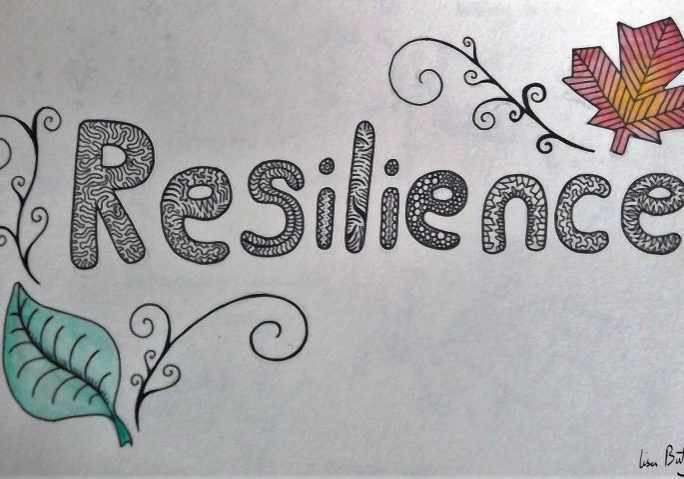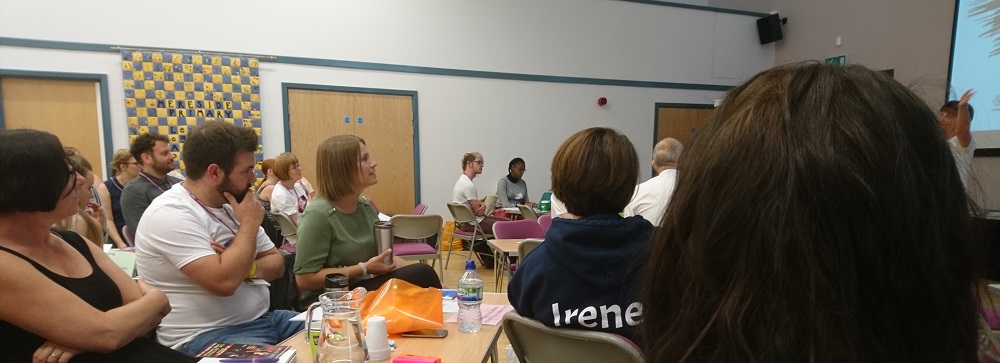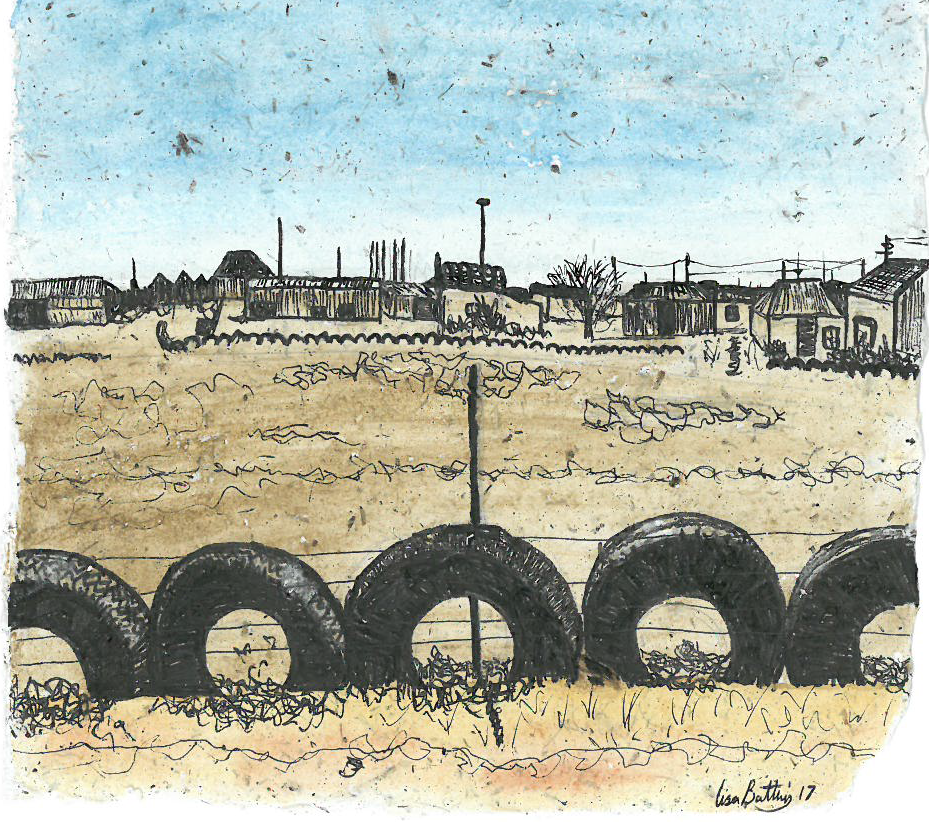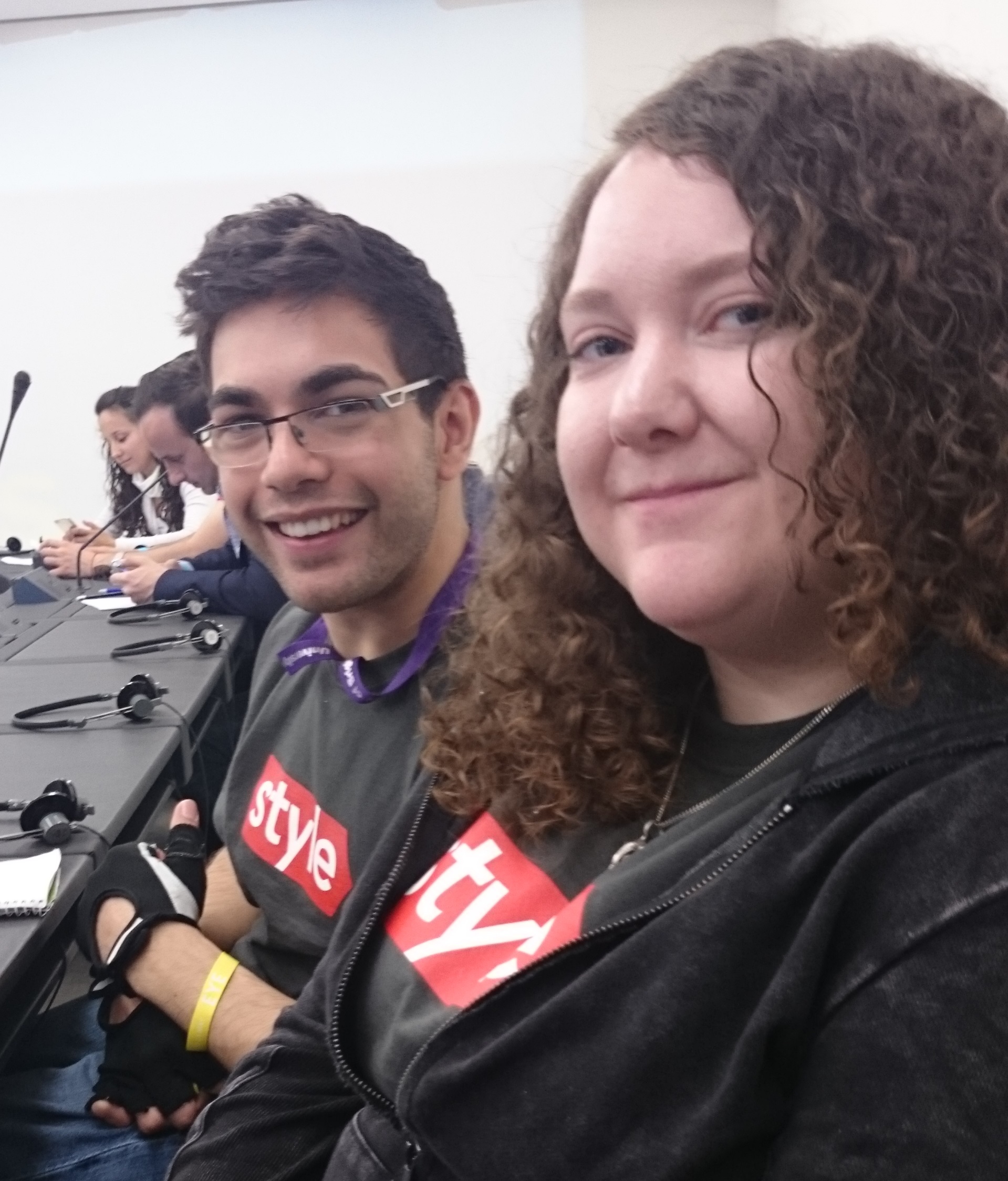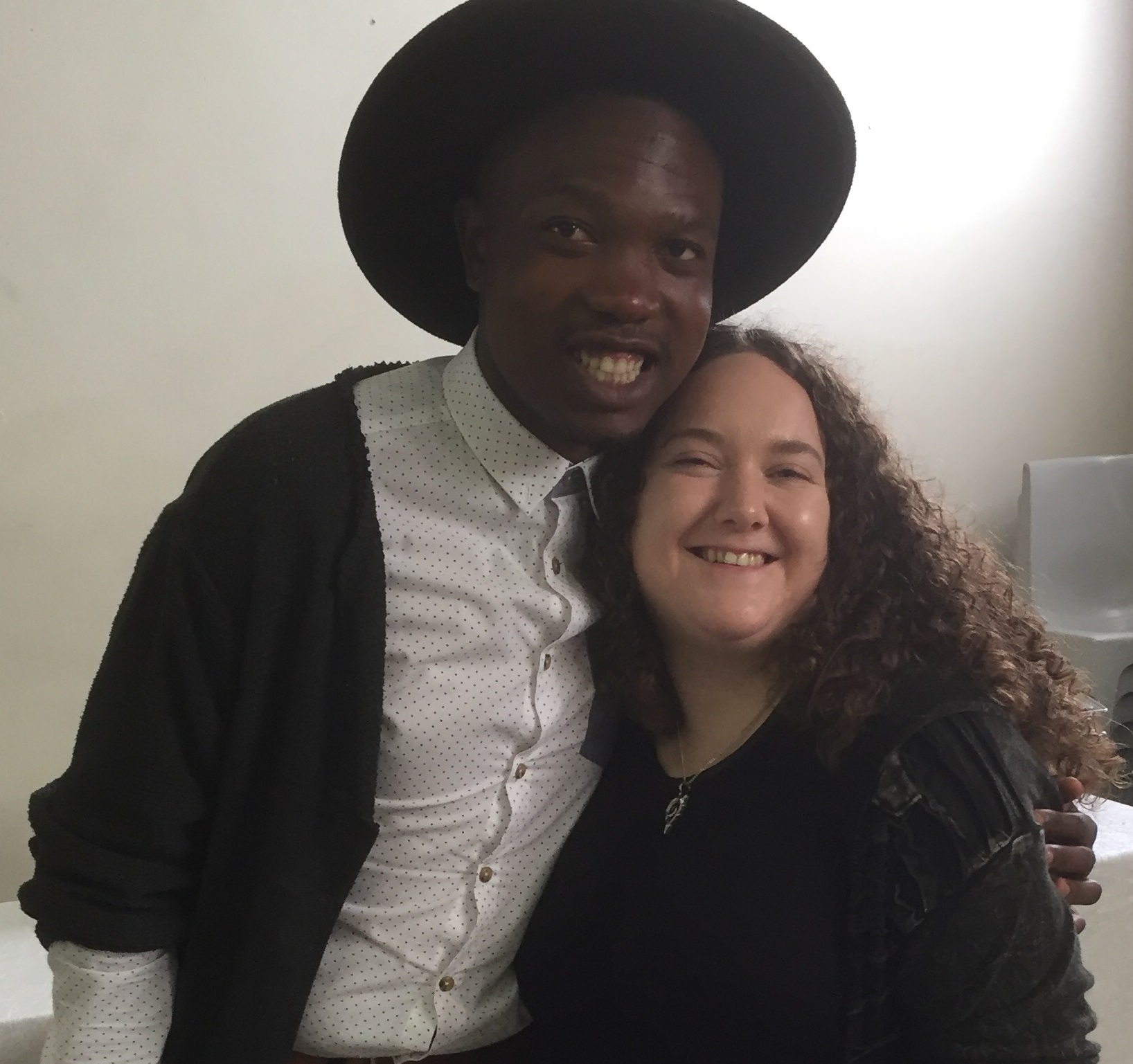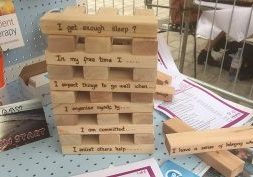The evolution of Boingboing – by Lisa Buttery – Assistant Trainer, Project Worker & Artist in Residence
Hi, my name is Lisa and this blog is about my own journey volunteering and working with Boingboing. I’m going to tell you a bit about the evolution of our work and Boingboing’s development over the years I’ve been involved.
I first got involved with Boingboing in 2008, Angie Hart and Sam Taylor helped Art in Mind (a community mental health group I was volunteering with at the time) write a guide for parents and carers of young people experiencing mental health issues. I must admit the first time I was told about Resilient Therapy I was cynical, I have a long history of involvement with different services and therapies and at first, I didn’t see anything special about Boingboing’s approach – it just seemed like common sense to me. Gradually as I got to understand Boingboing’s work a bit more I realised there was more going on than I had originally thought. Boingboing were interested in supporting research that valued peoples lived experience of adversity, they considered the wider challenges and situations that people were living in and took a much broader perspective than the various services involved in my life at the time. As I learnt about the way research can influence things like policy it was like a door being opened to a whole new world of knowledge to me. I’d dropped out of college because my mental health needs couldn’t be met. I didn’t understand much about universities or research, how services came to be or how policies impacted ordinary people. I quickly changed my mind as my understanding deepened.
Once we had produced our guide (Mental health and the Resilient Therapy toolkit) Boingboing continued to work in this way whilst becoming more articulate and clearer in communicating our social justice approach, accompanied by a strong commitment to co-productive research. I, along with other young people, travelled to different events and conferences to speak about our work, I was able to make the most of opportunities to experience things I’d never imagined were possible. Even when I was too ill to fully participate, Boingboing was committed to making space for me to be meaningfully involved in projects and events. This was totally different to most of my experiences with services like CAMHS (child and adolescent mental health services) where one of the major barriers to getting the help I needed was my agoraphobia which worsened when I needed help the most. I loved volunteering with Art in Mind and Boingboing, I have a strong drive to help others and to this day when I struggle to cope with my illness, my desire to help others spurs me on and helps me through the darkest days. The more I work with Boingboing, the stronger my understanding and belief in what we are trying to do becomes.
I continued my involvement as much as possible and in 2012 I took part in a project called “Make Your Mark” later helping to produce a visual arts for resilience guide. Following those projects Art in Mind went on to host a resilience forum at our group in November 2013, we then created artwork inspired by the Resilience Framework to exhibit at a connected communities showcase in Cardiff in 2014. Another volunteer called Emily Gagnon and myself took on the task of co-curating our “Resilience House” installation. You can watch our short film about the whole process here.
Once our exhibition in Cardiff was over I decided to get more involved with Boingboing and begun volunteering in Boingboing’s office space at Brighton University. In the first few weeks colleagues supported me to travel to and from the university and to begin with I helped with things like basic admin tasks. Slowly my confidence grew, and I began to feel more comfortable working in the office. I was able to attend and experience different conferences and retreats, I attended every Imagine project conference and even travelled to Canada in 2015 to attend and present at the Pathways to Resilience conference. I gladly accepted a paid part time position with Boingboing in 2016. Volunteering and working with Boingboing has been a very positive experience for me, I’ve always felt nurtured and supported and although my health issues mean there are some limitations to the things I’m able to do, as an organisation Boingboing is always understanding. We’ve worked together where necessary to create solutions that mean I’m able to work as well as possible and continue striving to make a positive difference wherever I can.
Today there’s a freely available large collection of tools and resources on our website that we’ve co-produced over the years. We’ve translated the resilience framework into many different languages and co-produced different versions. A great example to check out is this awesome young people’s version that was co-produced by the Resilience Committee at Marton Primary School in Blackpool. Overall, people have reacted very positively to our work and social justice approach and we’ve had the privilege of working alongside a huge number of inspirational people and organisations. To name just a few examples, we’ve worked with volunteers from Rise – a Sussex-based charity that supports people affected by domestic abuse and violence, community arts group Arts Connect, mental health campaigner Hope Virgo and the Rocket Artists.
Evolution of global Boingboing
More recently, we’ve expanded our work to promote a social justice approach to resilience both nationally and globally. In 2017 Boingboing were partners on a project focussed on young people’s resilience in the South African municipality of Govan Mbeki. Researchers collaborated closely with international partners Khulisa Social Solutions and leading academics in the UK, South Africa and Canada to harness the lived expertise of young people who were co-researchers on the project researching the physical and mental impacts of drought. You can find more information and blogs about the project here.
Closer to home we’ve supported Blackpool HeadStart to implement a town wide approach to young people’s resilience and worked with East Sussex County Council, Download (a CAMHS user group) and East Sussex Youth Cabinet to co-produce a schools guide to supporting young people’s mental health. I have been involved in all these developments and learnt a lot about the ways that councils, commissioners and services work together to help support young people, I’ve also developed my own writing and training design and delivery skills along the way. I feel proud to have been part of Boingboing responding in a tailored way to the unique needs of whoever we’re working with, it’s never a one size fits all approach; we always strive to carefully consider the contexts that we’re working in.
Personally, I feel positive about the future of Boingboing’s work and think there is a real need for what we’re trying to do. At a time when the answer to challenges like austerity often sounds like “people need to be more resilient”, I want to push even harder for the definition of resilience to be “beating the odds whilst also changing the odds”. People can only cope with so much, often in tough times situations are complicated, sometimes systems that are supposed to help are set up in ways that end up being less than helpful for individuals and families. I firmly believe that resilience should focus on wider issues as well as individual traits and there’s plenty of evidence to support these ideas too! I’m looking forward to continuing my work with Boingboing in the future, there’s so much more I still want to learn and there are always further challenges to address. As resilience seems to become an increasingly popular word, I feel excited to be part of Boingboing’s work towards creating a fairer definition and understanding of what resilience can mean and look like in all sorts of different situations.
